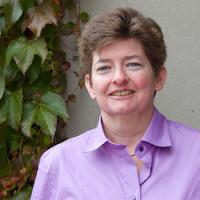Home⁄ About⁄ News⁄ Director of CCMR, Hines Awarded Weiss Fellowship for Outstanding Teaching
Director of CCMR, Hines Awarded Weiss Fellowship for Outstanding Teaching

CornellChronicle By Bill Steele – Ashim Datta, professor of biological and environmental engineering; Melissa Hines, professor of chemistry and chemical biology; and David Sherwyn, the John and Melissa Ceriale Professor of Hospitality Human Resources and academic director of the Cornell Institute for Hospitality Labor and Employment Relations, have received Stephen H. Weiss Presidential Fellowships in recognition of their inspiring teaching of undergraduate students, President David Skorton announced at the Cornell Board of Trustees meeting in January.
“It is my pleasure to announce the new Weiss fellows, whose nominations by their students and colleagues attest to their extraordinary teaching and mentoring,” said Skorton. “They have our deep appreciation, admiration and gratitude.”
The fellowships, established in 1993 by the board, recognize tenured faculty members with “sustained records of effective, inspiring and distinguished teaching of undergraduate students and contributions to undergraduate education.” The late Stephen H. Weiss, former chair of the board, conceived and funded the awards as a way to highlight the importance of undergraduate education at a research university. The fellowship includes $5,000 per year for five years to be used for any university-related purpose. The recipients remain Weiss Presidential Fellows throughout their Cornell careers.
Datta studies transport of heat and water in biological processes with applications ranging from food to biomedicine. His primary interest is in the engineering models of food quality and safety with a goal to increase the efficiency and competitiveness in the food system. He teaches courses in the College of Agriculture and Life Sciences and College of Engineering on the basics of transport phenomena and how they apply to biological processes. Students praise his engaging teaching style, real-world examples, “unlimited” office hours and dedication to seeing that all students learn. He has made special efforts to reach those at the bottom of the class, and has made major contributions to the department by developing new courses and textbooks, and by taking part in workshops, lectures and a teaching-excellence seminar.
Hines and her research group work to understand and control the structure and chemistry of nanoscale surfaces with the idea that simple chemical reactions can be much more precise and more controlled than the most advanced nanofabrication tools, selectively carving out near-atomically perfect surfaces. She has introduced new teaching methods, completely reinvented laboratory sections, and fostered a new sense of community and engagement among the department’s students and faculty. Her development of more interesting and realistic problem sets and encouragement of group problem-solving has greatly benefited students. She has inspired many students to continue advanced studies in chemistry, and many also praise her willingness to help them with personal as well as academic issues.
Sherwyn studies and teaches labor and employment law issues, arbitration of discrimination lawsuits, sexual harassment and retaliation in the School of Hotel Administration. Prior to joining the faculty, he practiced management-side labor and employment law for six years. He is well known as a demanding and engaging teacher who asks students not merely to learn facts about the law but to understand it as a developing system and to consider what it should be as well as what it is. He creates an “interactive theater” in which students participate and reflect on their positions. Colleagues note that he has helped them improve their own teaching, and students praise his generosity as an adviser and mentor, helping them with personal issues as well as academic and career choices.
